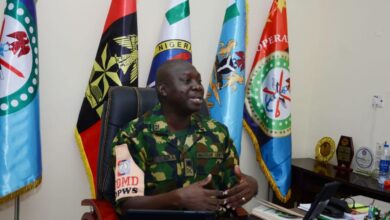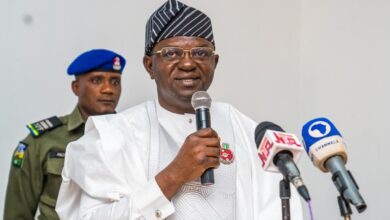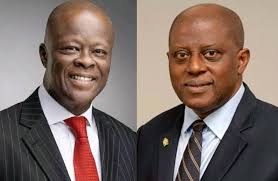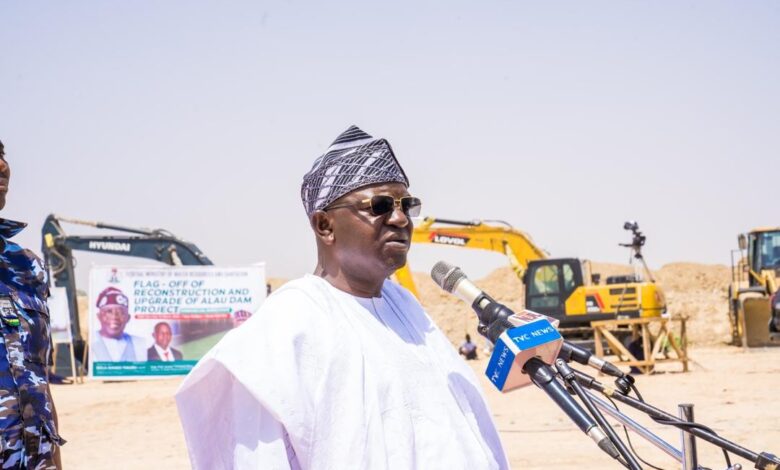
The Federal Government of Nigeria, through the Ministry of Water Resources and Sanitation, has been working assiduously to expand access to potable water across the country.
Nigeria faces significant water challenges, including widespread water scarcity, poor water quality due to pollution, inadequate infrastructure, and inequitable access, particularly in rural areas, impacting public health and livelihoods.
There is no doubting the fact that Nigeria is blessed with significant water. However, millions still lack access to safe drinking water and basic sanitation facilities, with the World Bank estimating that 70 million Nigerians lack access to safe drinking water.
The Ministry, since the assumption of office of the Minister of Water Resources and Sanitation, Prof. Joseph Utsev over a year ago, has birthed several initiatives aimed at providing clean and drinkable water to Nigerians.
These World Bank-funded initiatives; the Partnership for Expanded Water, Sanitation, and Hygiene (PEWASH), the Clean Nigeria: Use the Toilet Campaign and the Sustainable Urban and Rural Water Supply, Sanitation and Hygiene (SURWASH) Programme, among others, were designed to enhance water and sanitation services across the country.
Living up to its mandate of enabling sustainable access to safe and sufficient water, the Ministry recently, while commemorating the 2025 World Water Day, commissioned a solar-powered Borehole at NYSC camp, in Kubwa, Abuja.
The water facility donated by the Ministry was expected to provide thousands of Corps members with reliable access to clean water, reinforcing the Federal Government’s commitment to sustainable water management and sanitation.
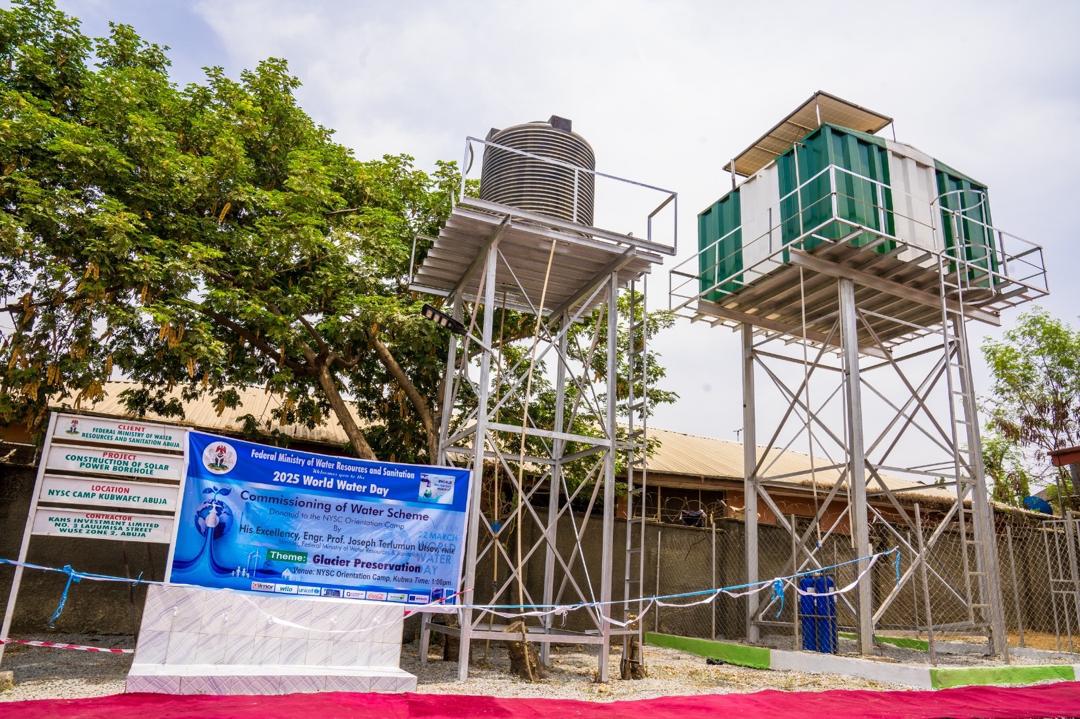
Also recently, the Federal Government, through the Ministry of Water Resources and Sanitation, flagged off three critical water supply projects in Benue State.
The projects which includes rehabilitation and upgrading of the Buruku-Gboko Water Supply Project, Rehabilitation and Improvement of the Wannune Water Supply Project, and Construction of the Ugbema Water Supply Project were aimed at expanding access to potable water, improving public health, and mitigating the prevalence of waterborne diseases in the state.
Speaking at the flag off ceremony in Gboko, Benue State, on March 27, 2025, the Minister of Water Resources and Sanitation, Engr. Prof. Joseph Terlumun Utsev, underscored the government’s commitment to sustainable water infrastructure.
“These projects are not just about water supply; they are about transforming lives. Access to clean water is fundamental to health, economic growth, and social development. With these projects, we are ensuring that residents of Buruku, Gboko, Mkar, Ugbema, Wannune, and surrounding communities no longer suffer from inadequate water supply,” Utsev stated.
“The Buruku-Gboko Water Supply Scheme seeks to rehabilitate vandalized infrastructure and restore potable water to over 506,000 residents. The project involves drawing water from the Katsina Ala River, treating it, and distributing it across key communities”, he added. Utsev revealed that the ₦18.89 billion project was approved by the Federal Executive Council (FEC) and awarded to Messrs Ceylon Construction Services Limited with an estimated completion timeline of 18 months.
“The rehabilitation of the Gboko Water Intake and Treatment Plant includes modern pumping systems adaptable to solar power, restoration of the 7km transmission main, and installation of a 150m³/hr Package Water Treatment Plant at Buruku station. These will collectively enhance efficiency and reliability,” he explained.
The Ugbema Water Supply Project involves the construction of five standalone solar-powered boreholes with fetching points and lighting, four industrial solar-powered boreholes, a 200m Braithwaite surface tank, a 150m³ elevated tank on a 12m stand, and a 50m³/hr treatment plant.
Similarly, the Wannune Water Supply Project consists of four industrial solar-powered boreholes, each with a 100m elevated steel-welded tank, a mini treatment plant, power connections, and solar lighting to enhance functionality.
In February, 2025, the Ministry inaugurated its maiden edition of the National Water Quality Conference in Abuja, underscoring the vital role of safe water in public health, environmental sustainability, and national development.
The conference serves as a strategic platform to address water quality challenges and reinforce the nation’s commitment to ensuring access to potable water, in line with the Renewed Hope Agenda of President Bola Ahmed Tinubu.
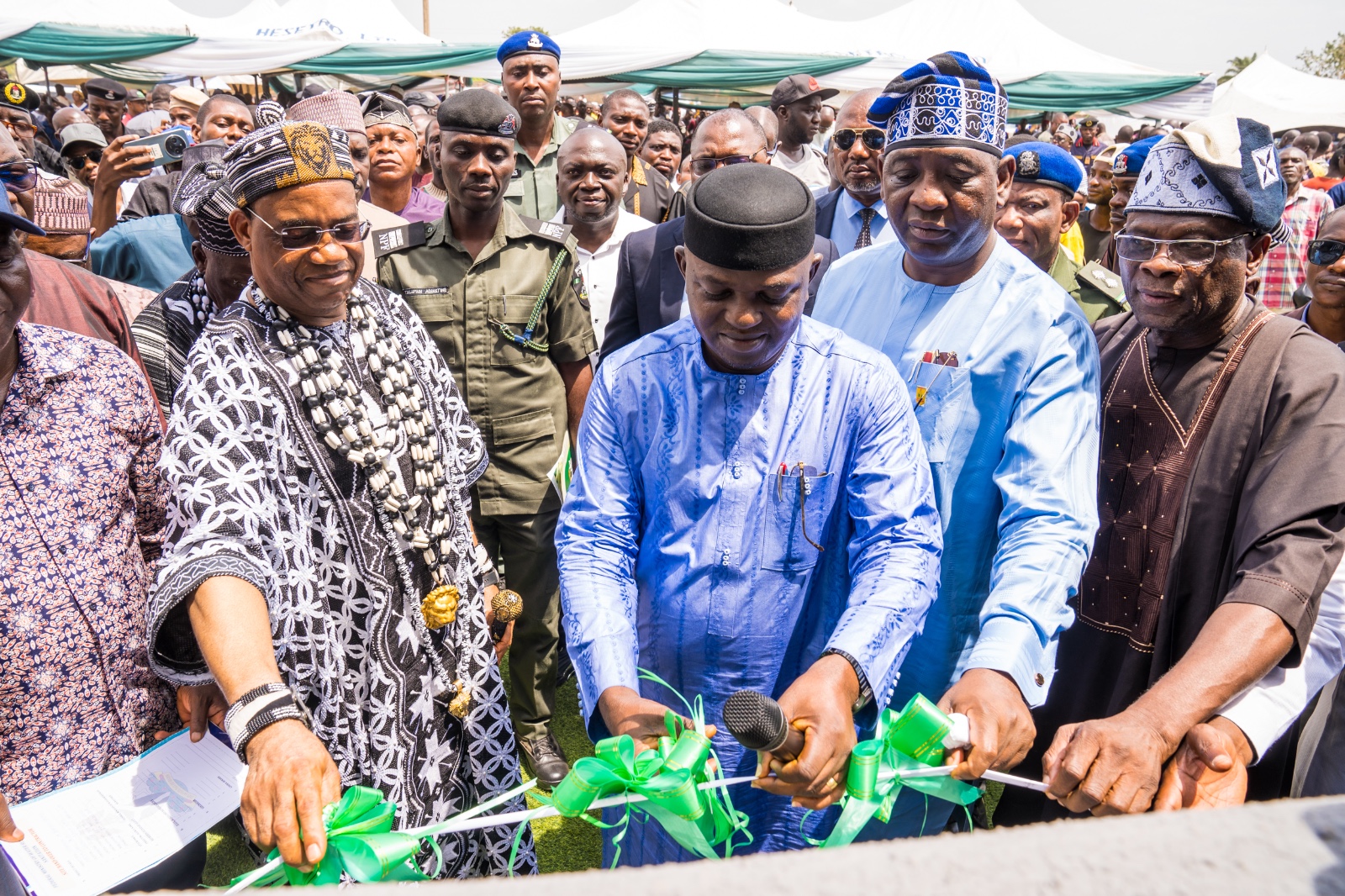
Speaking, the Minister emphasised the impact of water quality on national and global development goals.
Citing the 2021 Water Supply, Sanitation, and Hygiene (WASH) National Outcomes Routine Monitoring Report, Prof Utsev revealed that while 67% of Nigerians have access to basic water supply services, there were still gaps in ensuring safely managed drinking water which necessitated urgent action.
He expressed concern over the effects of poor sanitation and open defecation, which according to him poses serious health risks, but expressed optimism that, despite the challenges, the Ministry was actively, leveraging modern technology to enhance water quality management,fostering partnerships with key stakeholders and implementing innovative solutions to improve access to safe water.
He further stated that, the Nigerian Roadmap for Water Quality Management has been developed to guide national efforts, alongside the Federal Government’s establishment of twelve (12) water quality laboratories across the country for monitoring and surveillance.
Additionally, the Community Water Safety Plan has been introduced to empower rural communities in preventing water contamination.
The Ministry under the current Minister, Prof. Utsev, has constructed and rehabilitated some dams across the country. These include the Rafin Yashin Multipurpose Dam in Niger State, the Odo-Ape Dam in Kogi State, the Lessel Earth Dam in Benue State, the Mangu Dam in Plateau State, and the Adada Dam in Enugu State
While speaking in Akwa Ibom State In January, 2025, the Minister stated that the Nkari Dam was 55% completed and has been prioritized for completion under the current administration.
He said with over 500 hectares of irrigation potential and a reservoir capacity of 3.5 million cubic meters (MCM), the dam will significantly enhance irrigation farming, water supply, fisheries, and food security in the region.
He announced the Federal Government’s approval for the construction of two Reference Laboratories per geopolitical zone, with Akwa Ibom State selected as one of the beneficiaries.
According to him, the establishment of the facility would help curb waterborne diseases by ensuring comprehensive borehole water testing.
Also, in March 2025, the Minister flagged off the reconstruction and upgrade of Alau dam in Borno State.
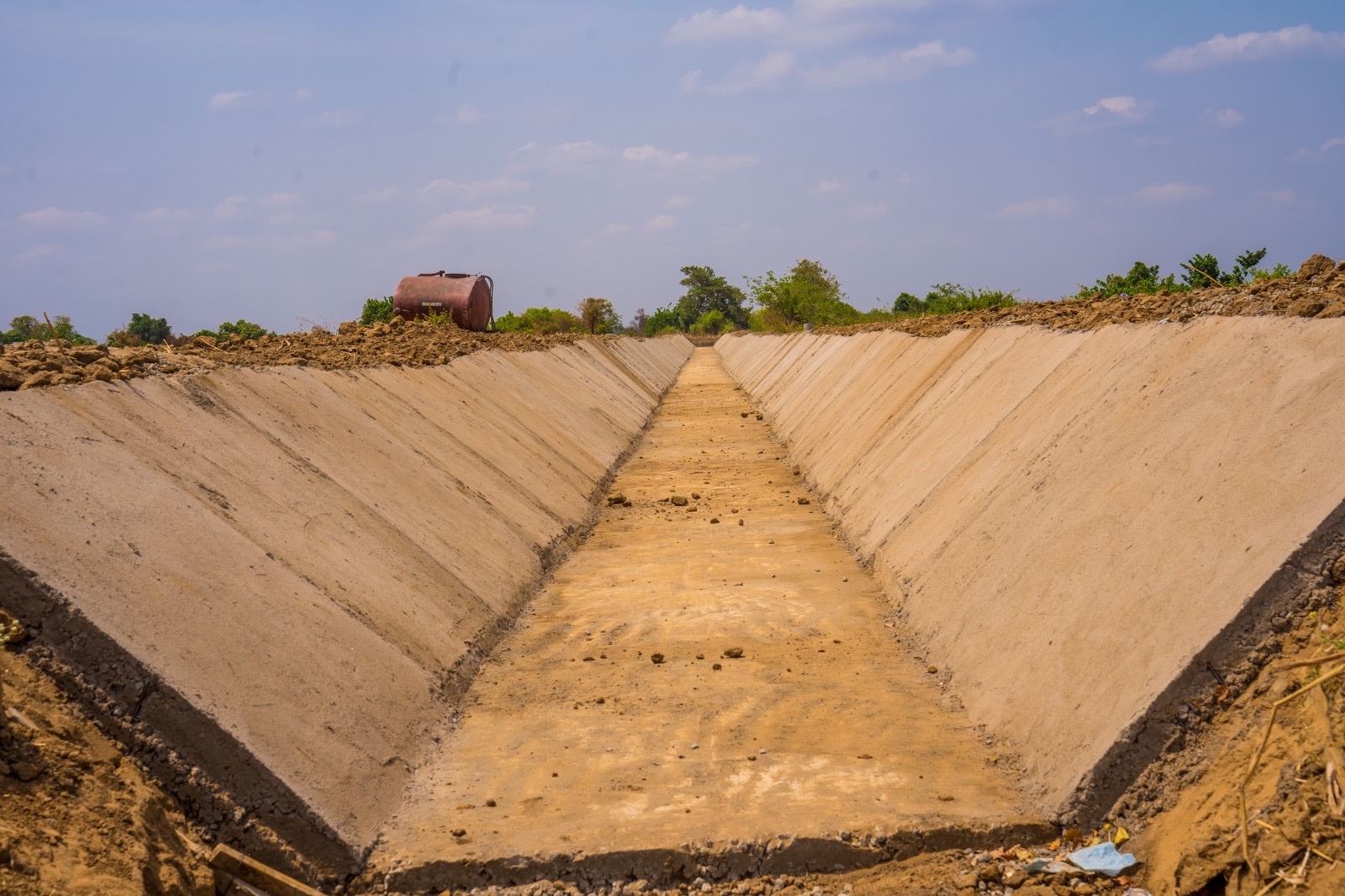
He noted that the devastating flood of 10th September 2024, which affected Maiduguri and surrounding communities, necessitated the urgent intervention by the Federal Government.
Prof. Utsev explained that following a comprehensive assessment by a high-powered Technical Committee on Evaluation of Dams in the country, President Tinubu approved the sum of ₦80 billion for the full reconstruction and upgrade of the Alau Dam.
He informed that the project would be executed in two phases over 24 months, Phase One which is the immediate intervention to mitigate flood risks would span from March 2025 to September 2025, while the second Phase which consists of extensive desilting and structural enhancement to ensure long-term resilience will span from October 2025 to March 2027.
These projects underscores the administration’s commitment to enhancing water resource infrastructure, ensuring flood control, and fostering economic growth in the country.



